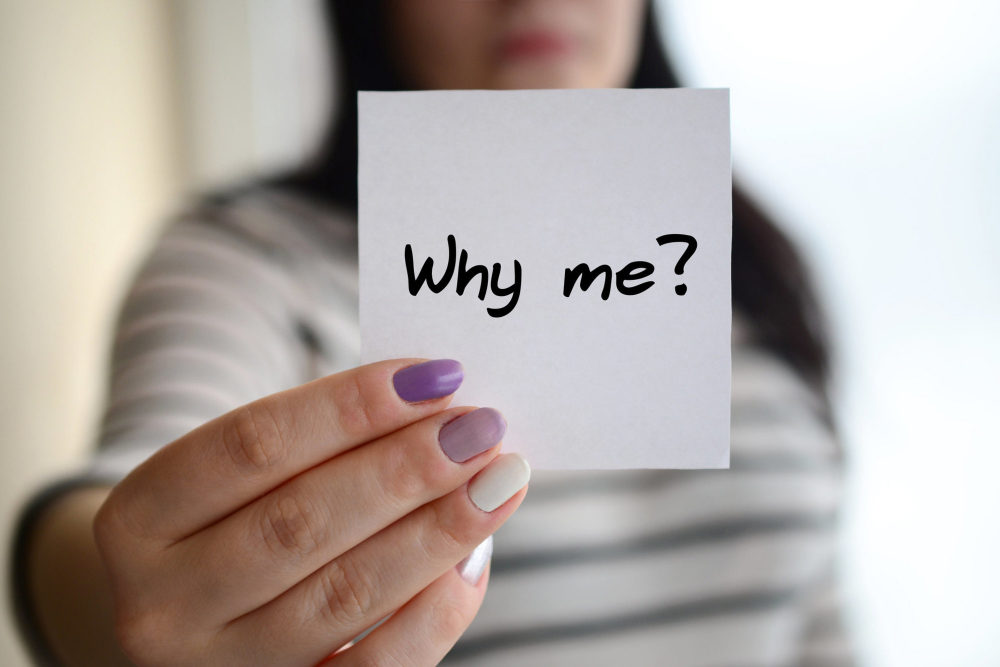
The emotional burden of following a medically necessary gluten-free diet weighs heavily on a person. In this article, I’ll share five of the emotional burdens faced by people following a gluten-free diet. Please see my disclosures and disclaimers.
Last year, I went on the trip of a lifetime to Israel, a magical place I love dearly. I went with a women’s tour group and had a full itinerary of travels and lectures.
Of course, before I went on the trip, I spoke with my city leader and the leader of the entire trip. Communicating your dietary needs upfront is always a must! They assured me that providing safe, gluten-free meals would be “no problem.”
This turned out to be a lie. It was a problem. A big problem. The chef catering for our tour group was paralyzed with fear when preparing food for me.
On top of that, I could not leave the tour group – it was not safe, nor did I speak the language. Of course, Israel has all sorts of gluten-free food. This is a progressive nation known for its delicious and healthy Mediterranean foods.
So, while my tour group feasted on bread and gourmet meals, I nibbled on bird food (aka, lettuce and carrots). No protein. No rice. No warm meal. No fun.
By Day #3, I was fed up with being unfed. I was sick of advocating for myself and feeling hungry. I unsuccessfully tried to hold back tears, but on Day #3, the tears flowed like Niagara Falls.
We were eating at a restaurant (part of our tour group), and they told me they had prepared a safe meal for me. As I watched my group dine on several courses of beautiful foods, I patiently waited for the “safe” meal I was assured was coming for me.
Finally, my “safe” meal arrived. It was a sad and overcooked chicken breast beside white bean sprouts (see picture below). I started crying. I couldn’t believe no one in this beautiful country could create a nourishing, safe meal for me.
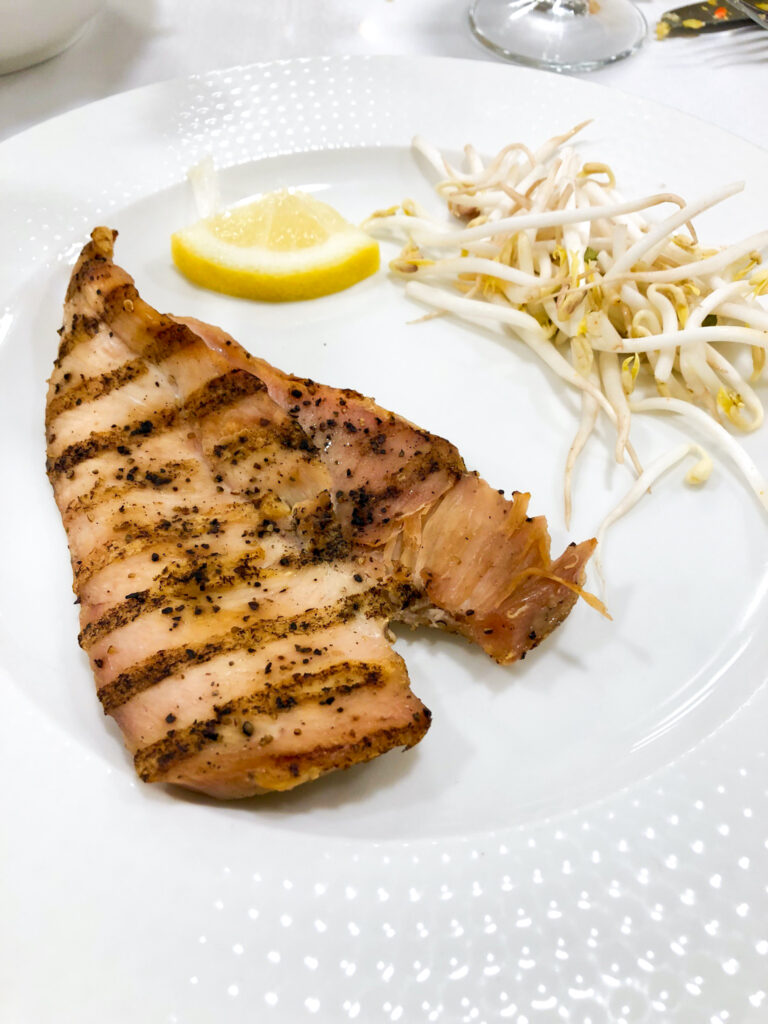
The night was just beginning. Everyone’s belly was full, so they started singing and dancing; I was done. I felt defeated. I left the restaurant in tears. Even as I write this, there is a lump in my throat.
It may seem trivial to most people – perhaps a first-world problem, as some would say – but to me, I felt like a burden, a social pariah, and on top of it all, my emotions were getting the best of me.
I swiftly returned to my hotel room and cried myself to sleep that night – a first for me.
I’m usually tougher than this, but I was tired, hungry, and far from home. Despite my educating, pleading, and advocating, this “no-food-for-Jenny” routine continued for the rest of my trip. I was promised a meal and was sorely disappointed by the sad plate of food placed before me.
This whole episode is not new to me, but after more than seven years of being gluten-free, I thought I was above such emotional outbursts. Apparently not.
Sure, there have been random events in the past where there was no food for me… but I was in America, and I could easily find food on my own.
There were times when I’d been assured a meal of finding a few pieces of lettuce, tomatoes, and cucumbers awaiting me while the rest of the room reveled in lasagna.
But again, near home, I could easily find food. I wasn’t going to starve, and my emotions were never as high as they were thousands of miles away from home, at the whim of a tour group, and uncertain of where I was or how to speak the language to find the food I needed to nourish my body. There are only so many salads, cereal bars, and dried meats you can live on for 10 days!
I shared my humbling story on Instagram only to find that so many of you have experienced similar situations … and learned that everyone’s emotions are high when it happens to them.
That is when I realized there is an emotional burden to having celiac disease. Like any chronic disease, celiac disease takes its toll on a person.
Most people can eat anything and sustain themselves, but for someone with a gluten disorder (or food allergy, for that matter), it’s not so easy.
And when you’re at the whim of other people in a foreign land to feed and nourish you, the burden is compounded, and you want to scream, cry, hide, and go home.
In this article, I discuss the emotional burden of a gluten-free diet. I hope it helps you see that (a) you’re not alone and (b) there is a silver lining to having a gluten disorder.
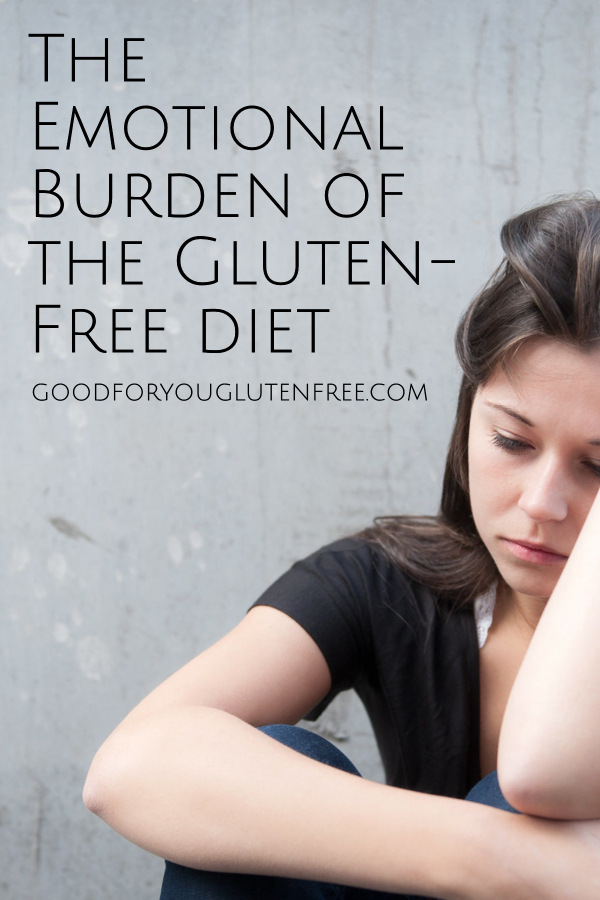
Emotional Burden #1: Fear
For some people, stories like the one I shared above make people feel paralyzed by their disorder. They refuse to travel or even eat out for fear of being “poisoned” by gluten. They purposely deprive themselves of social and emotional nourishment because of their gluten-free diet. They fear getting sick.
I personally enjoy eating out, trying new foods, and being with friends. I refuse to let my “disability” get in the way of living a full, social life, and I’m willing to fight for what I need to be able to live the life I desire. Am I defeated at times? Absolutely. I’m willing, however, to go down fighting if I have to.
Of course, there are sticky situations to manage when eating, especially when traveling.
I had to alter how I traveled through London, Paris, and Amsterdam last summer. I researched restaurants and spent time seeking out those restaurants during my travels. I couldn’t just grab something on the go; I had to be more intentional about my activities.
I also document what it’s like to go on a cruise while gluten-free, another challenge that set off a slew of emotions but left me stronger in the end.
I genuinely believe no one should put their fear of food and getting sick ahead of their desire to see the world; I also recognize that it’s definitely easier said than done.
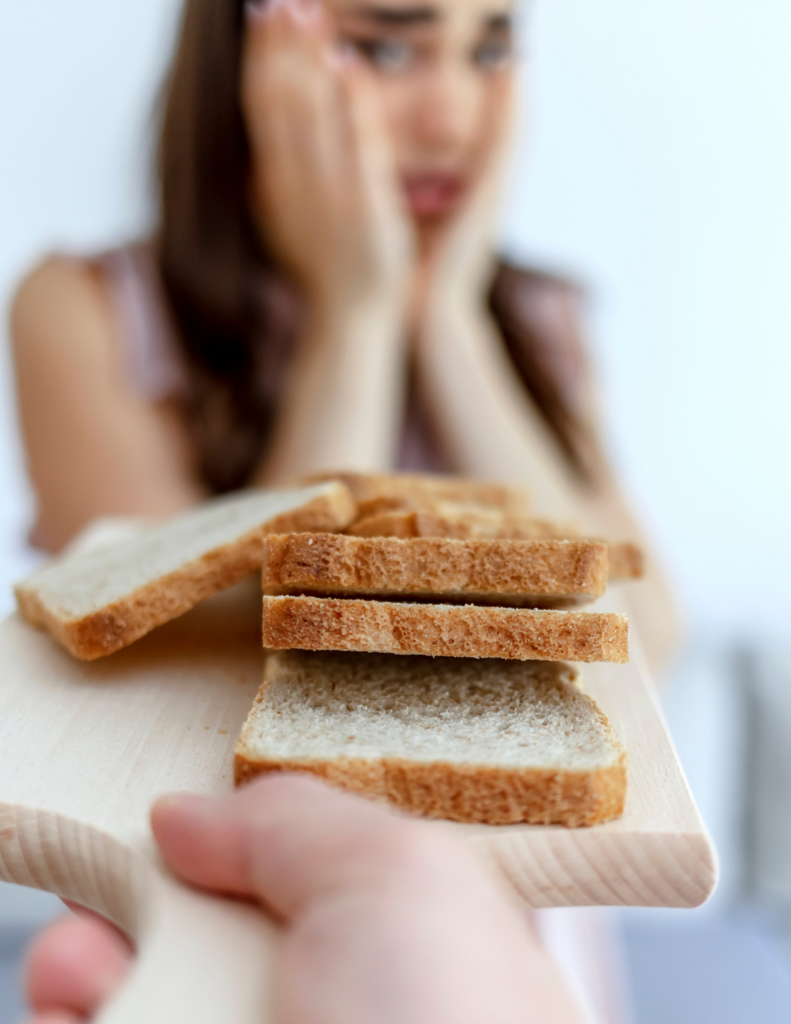
Emotional Burden #2: Isolation
A gluten-free diet can also make someone feel isolated or cause them to isolate themselves purposely.
I can only imagine the emotional burden of a gluten-free diet on a child invited to a birthday party. No pizza or cake for them. And they probably feel awkward as they watch all the other kids eat pizza while they nosh on a banana their mom packed for them. I’m an adult, and these emotions are raw for me – I can only imagine how a child would feel.
A few years ago, I was walking with a group of friends. We walked by a bakery, and they all wanted to go in. The bakery’s wonderful scents were wafting in the air, enticing each passerby. My friends purchased bags of pastries while I waited outside and felt sorry for myself.
I could see the excitement in their eyes when they were shopping, and they were excited to share their “finds” with me and one another. I had to tap my dramatic acting skills to pretend to be excited by their purchases. (I should have won an Oscar that day!) I didn’t want to be a Debbie Downer, nor have them feel guilty for indulging in something perfectly normal.
It’s no wonder that long-term adherence to the gluten-free diet rates (especially for those who are gluten-sensitive vs. those who have celiac disease) is so poor. This emotional burden of the gluten-free diet is hard!
In a survey mailed to patients with celiac disease, gastroesophageal reflux disease (GERD), irritable bowel syndrome, inflammatory bowel disease, hypertension (HTN), diabetes mellitus (DM), congestive heart failure, and end-stage renal disease (ESRD) on dialysis, researchers set out to understand the burden of treatment for each disorder. The study included 341 celiac participants and 368 non-celiac participants.
Celiac disease participants reported a high treatment burden, greater than participants with GERD or HTN and comparable to those with ESRD.
However, interestingly enough, celiac disease participants had the most excellent overall health status compared to individuals with other chronic medical conditions surveyed. (Pretty good silver lining, right?)
Researchers concluded that the significant burden of dietary therapy for celiac disease patients makes the case for the desperate need for additional treatment options and interventions that can lower the perceived burden of a gluten-free diet.

Emotional Burden #3: Changed Relationships
The emotional burden of a gluten-free diet doesn’t solely impact the person with the disorder but also can adversely affect relationships.
A study from Columbia University examined the stress related to caring for someone with celiac disease, showing that caregivers experience high stress or level of burden when it comes to caring for someone with celiac disease, particularly a patient with severe symptoms.
This research suggests that celiac disease affects more than just the person with the disorder, and a gluten-free diet can deeply and negatively impact one’s relationships.
I recently watched my friend deal with the emotional burden of raising a child with celiac disease, particularly in the early months. My friend’s daughter (we’ll call her Kate) goes to a private camp every year. Unfortunately, Kate was recently diagnosed with celiac disease about four months before the start of camp.
When my friend called the camp to request accommodations for Kate, the camp told her to take her business elsewhere. They said they were a private camp and simply could not accommodate one child with special gluten-free food when they were trying to feed 500 children simultaneously. Apparently, the camp has the right to do this.
My friend said Kate was devastated. All her friends go to this camp, and the experience has been ripped from her. Talk about an emotional burden you never want your 13-year-old daughter to face, but the emotions are raw, and the struggle is real. This gluten-free diet business, no doubt, ruined her summer and challenged her friendships.
Dating is also another emotional burden that can impact your mental state.
If you’re dating while gluten-free, your special diet usually comes up prior to the first date because you’ll have to explain that you can only eat at certain restaurants. If it doesn’t come up before the date, it undoubtedly comes up on the date as you explain your diet – in front of your date – to a server.
What other disease must you explain to someone on a first date? “I suffer from chronic fungal infections. Now that we got that out of the way, where should we go to eat for our first date?” said no one ever.
On top of it all, a survey published in 2018 found that more than 40 percent of people would be “reluctant” to date someone who avoids gluten because they perceive gluten-free eaters as “high maintenance.”
The emotional burden of the gluten-free diet is compounded if your date loves to eat gluten. He may have downed a beer or two and his burger (with bun). Ah, have fun explaining why he doesn’t get a goodnight kiss.
Emotional Burden #4: Worry About the Future
Another emotional burden for those with gluten disorders is worry about the future. What will become of our health and lives?
People with gluten disorders are at risk for accumulating other serious, life-alternating diseases. The incidence of autoimmune diseases in the general U.S. population is low – only 3.5 percent; however, the incidence of getting another autoimmune disease for someone already diagnosed with celiac disease is 34 percent higher in adults over 20 years old, according to this study.
Furthermore, will there be proper care as we age? What happens when a person with celiac disease is in a nursing home and dependent on others to prepare their food? A Maryland woman is suing her retirement community for failing to provide her with safe gluten-free meals.
I’ve had to learn how to build my mental strength. I never knew how strong I could be until I was tested for celiac disease. I know I have been given this disease for a reason, and it will make me stronger, healthier, and better in the end.
I know I cannot spend time worrying about things that haven’t happened (and may never happen). I can only live in the present.
Today, I do everything in my power to stave off lifestyle diseases, including heart disease, diabetes, and cancer, most of which are in my control if I take care of myself, eat right (eat only gluten-free foods AND continue to make healthy choices … and perhaps lay off the M&Ms) and exercise regularly.
And for those things I cannot control – like the damage already done by eating gluten for 34 years of my life or due to my wonky genes – I won’t worry about it until I have to.
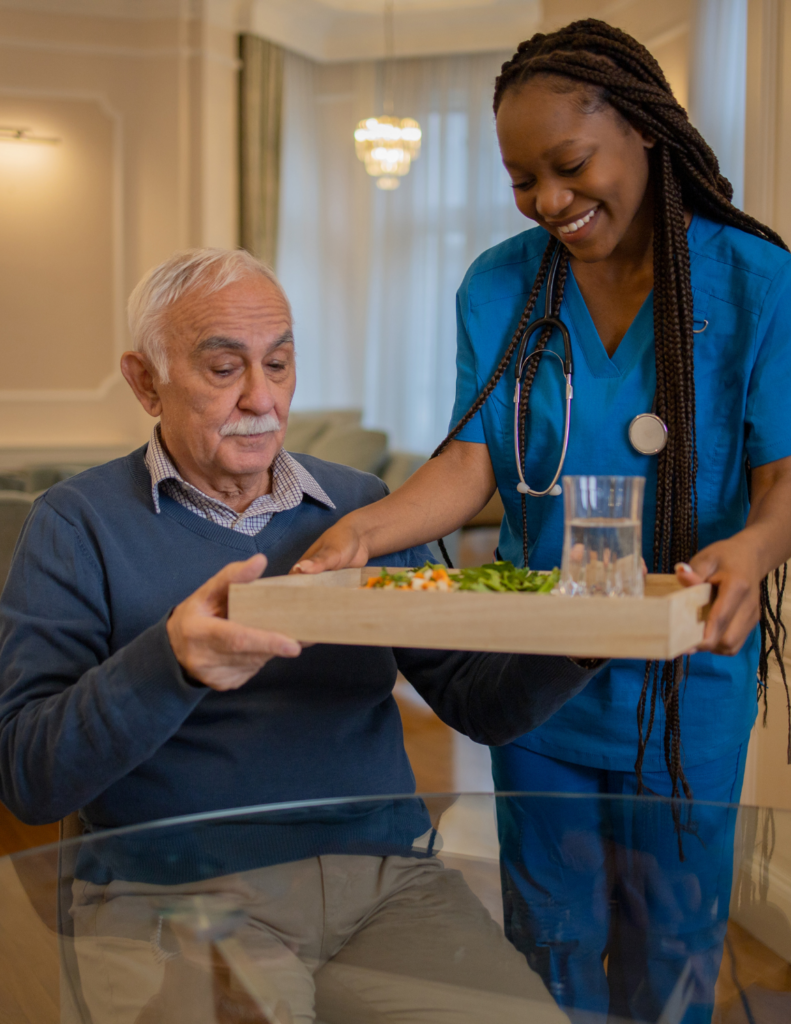
Emotional Burden #5: Sadness
It’s okay to feel sad; this is part of the emotional burden of being on a gluten-free diet. I have spent plenty of time feeling sorry for myself, holding back tears, and crying in a bathroom stall.
A lot of people with gluten disorders suffer from sadness. In fact, a German study found depression rates higher for people following a gluten-free diet than for the general population.
Other researchers found that even among individuals managing their illness “very well”, participants still reported higher rates of stress, depression, and a range of issues, including body dissatisfaction (weight and shape compared to the general population).
Remember, a little sadness is okay. My friend says tears are simply your soul sweating. However, if those symptoms are chronic and paralyzing, you need help and should talk to your doctor ASAP.
Keep in mind that nutrition plays a HUGE role in one’s mental health. Someone with undiagnosed celiac disease or unknown gluten sensitivity may have had trouble absorbing nutrients properly for a long time. They may feel depressed as a result of improper nutrition intake.
Those who continue to eat gluten despite knowing gluten is no good may also suffer from feelings of depression associated with poor management of their disorder.
Take a hard look at your diet. Are you serious about being gluten-free, or are you cheating on your gluten-free diet on occasion? If you’re cheating and feeling sad, it might be that your body has not healed, and you’re still not getting the nutrients you need from your food.
Remember, just because you have gluten sensitivity (vs. celiac) doesn’t give you an excuse to be less serious about your diet.
While it’s well documented that celiac disease impairs nutrient absorption due to persistent damage to the small intestine, those with gluten sensitivity are not in the clear. In fact, their small intestines live in a chronic state of inflammation. When inflamed, no organ or body part can function at full capacity … and it’s no secret that inflammation leads to disease.
A Little Perspective
It may seem all doom and gloom, but let me assure you, it’s not. These emotional burdens are just the realities of dealing with a gluten disorder; managing a chronic condition is not always easy, pleasant, or fair.
Please allow me, however, to offer a little perspective and perhaps put a positive spin on things.
I am personally grateful for celiac disease and the fact that I have the power to control my symptoms and reverse the damage in my body.
I am grateful celiac disease is not a terminal disease, and I’m grateful that I’m not dependent on pills, surgical procedures, or intravenous treatments to manage it.
I manage my disease daily with food – food as thy medicine and medicine as thy food – as the great Hippocrates, the Father of Modern Medicine, once said.
I’m also grateful for the friends and connections I’ve made because of this disease.
One example is how I got to see the beautiful side of my husband. After watching me struggle to be gluten-free, realizing how lonely and isolating it must be, he decided that our entire kitchen would be gluten-free and that he would go gluten-free, too.
He stood in solidarity with me. If it happened to me, it happened to him. What a beautiful way to show me just how much he loves me! And, as a bonus result of going gluten-free, my husband’s thyroid levels are regulated. A win-win!
Additionally, a gluten-free lifestyle has connected me with many new friends and professional connections. It has helped me see my relationships in a new light and be more grateful for my health and time here on Earth, and for that, I feel indebted to celiac disease.
Is it easy? Never.
Is it a daily struggle to overcome the emotional burden of a gluten-free diet? Always.
However, I truly feel blessed that I have celiac disease and can do something about it. I’ve gained a new lease on life.
Oh, and when I’m feeling sorry for myself, the good news is that chocolate is gluten-free. So is ice cream (check labels, of course).
I’m so sorry. I’m not sure where you live but a product should be labeled GF if safe.
Just found out I have celiac disease. I am Sicilian and my fiance is Portuguese. Needless to say everything we have eaten in the last 14 years has been covered in gluten. I wish he was as supportive as your husband, he refuses to even try the gf bread I have to eat now. My family lives 1200 miles away. I am truly alone or here. How do you know you can trust the food you get (store or restaurant) is truly gluten free. Not every label says that it’s safe (or not) even if it should be.
I was diagnosed with Celiac Disease in 2011. It has not been an easy ride over the last decade. I love traveling the world it’s a huge passion of mine and I have found most of the anxiety and sadness I experience is directly correlated to worrying about what and where I am going to eat next. Whether when traveling in a group or alone and in a foreign country with a possible language barrier it’s always a challenge. I always assure myself I will find something even if that means having a mediocre salad here and there, it’s part of the experience! My main advice to others would be to not get too caught up in it and enjoy your travels and live in the moment! As for your story in Israel, I visited this past summer and found the options in Tel Aviv to be incredible, lots of great places and I had GF Falafel and Pita for the first time! As for guided tours it’s always a little tricky with a large group and set meal menus but it’s never a bad idea to step aside once in a while and do your own thing! Thanks for sharing your story I really enjoyed hearing about your experiences abroad!
One of the weirdest parts of being diagnosed with celiacs is the nightmares. I will routinely wake up sweating from dreaming all I could find to eat was gluten food. I think the other difficulty for me is just the constant vigilance. As loving as my husband and two kids are they haven’t gone completely gf. The other day I was crippled in bed with an attack. The source, cross contaminated butter. So everything is seperate now. I also find it hard to know where to draw that line. Like my step daughter was baking and rubbed regular flour deep into my silicone baking mat and I lost my mind. Even though it is easier to mange at home it still feels like a constant battle and food shouldn’t be that way. I keep holding out hope that the trials they are running for a gf “vaccine” come through. It’s all just one meal at a time.
I have refractory coeliac disease where a gf diet alone doesn’t work, so I have to take tablets to suppress my immune system. Mostly I too am strong, just get on with my diet and try to educate restaurants, etc. But sometimes it is just too much having to watch others enjoy good meals and being able to select from a menu full of food when often there are virtually no gf choices. And you’re always worried you might get glutened.
Traveling in Europe was somewhat tarnished by only being able to get a proper meal once or twice a day. And it’s awful having to drag my husband from one restaurant to another to try to find a restaurant where there is a gf menu and I feel happy they understand about contamination.
That being said, most of the time it’s not a problem coping at home.
these articles are very helpful..and knowing there are others who feel that way too ..overwhelmed..frustrated sometimes..finding out a lot of the products i have been using forever(seems like it!) all have gluten..etc in them..make up,, lip ballms,body wash..etc..in process of changing those things..got new make up and blush..did not think about the make up brush till i was putting stuff away..frustrating occurences like that..so ..back to the store..lol..laugh at myself now..diagnosed with severe celiac disease a few months ago..about 4 or 5 months now..getting better with GF diet,etc,,my finfernails are growing back..had anemia for 2 years before having tests done..nails were horrible..all of them have come offf..back now ..normal color too! that takes awhile..forever..seems like it..again@ enough..
I also have times when I get emotional over being GF and struggle with not wanting to bother others about it. I try to focus on eating healthy foods and many gluten Ed foods really aren’t that healthy. Fortunately my husband has been very patient. I went on a Viking river tour and they bent over backwards to provide GF meals and who knew Lebkuchen is GF in Germany. One restaurant I went to in the US put noodles in my salad and I politely sent it back and asked for GF. The chef doused the new salad in hot sauce and I couldn’t eat it. It was very upsetting and the hostess said he must have just spilled a little on it. Needless to say I will never go back there!
Well said. Thank you so much for your comment ❤️
Thank you so much for your blog. It has helped to educate me on how to take care of myself, and it helps to know there are others who understand my struggles. I fear food and the awkwardness of social situations. My friends have tried to cook for me, but without success. I have stopped accepting invitations out, but invite others to my house where I can have control over the food. When I spent six weeks in Thailand, there was a period of time when I was separated from my group for a week and left with non-English speakers. I understand the difficulty of not being able to communicate your needs and going hungry. In those situations, I always worry that they would see me as a spoiled American because I do not eat the food offered. On a positive note, I had a wonderful experience on a trip to Alaska with Princess. It was the first time in 20 years that I ate gourmet meals with the rest of my group and felt “normal.” I was amazed at how much more relaxed I felt as I was able to enjoy myself without worrying about the after effects of my meal. Plus, there are so many more options now than there use to be. I find feeding myself on the road so much easier than it used to be, and I have more energy than my friends. There is a silver lining.
Hang in there Tom. I hope your silver lining is you are in good health.
You’re so sweet. I always feel silly crying over food but these emotions are so much deeper than the food on my plate. BTW, soy is GF. Those eggs are fine. It’s oats that are harvested in rotation with wheat.
There are lots of great GF options in Israel. My difficulties stemmed from my tour group. Tel Aviv has so many great GF foods. Jerusalem not so much.
I am right there with you. It seems so silly to cry over steak but there so many deeper emotions involved. A crouton on my salad has reduced me to tears. I’m with you girl!
I was diagnosed with celiac disease in 2007 after several years of declining health and weight. Even at age 70 I identify with the problems you illustrated in your article. After many trips and being glutened nearly every time, suffering with the symptoms for months afterwards, I announced to my dear wife I was done with traveling. And with eating in restaurants that were not dedicated GF (and good luck finding those here in the rural Midwest).
I now have a Nima Sensor which has saved me numerous times while attempting to eat out, but then I sit there in the restaurant, watching the others eat while I contemplate eating yet another tasteless GF protein bar back in the hotel room or car.
My wife says I’m not the same person I used to be and I agree. I fight depression, a sense of isolation and a fear of social situations.
Wow, I saw your article on the very day I broke down and started crying over gluten, and I’m just 2 weeks into my new lifestyle. It started that morning when I went to make my eggs,and I noticed the eggs that I’ve always bought without thinking twice had soy added to them. My heart just sank because soy might be harvested along side wheat. Urgh! My grocery shopping was also that same morning, and the toll it took to examine every label just broke me down by the time I got home. I’m lucky enough to have a very concerned and loving husband, so he let me cry and admit how hard this was. I’m not sure how good I’ll be at restaurants and advocate for myself, but I’ll try. I love to eat out, but now I am also scared. Your story of Israel and not having the appropriate meals makes me want to advocate for you and if I had been there I might have demanded they give you a refund LOL! Thank you for your help and stories. Looking forward to helpful advice in the future.
I too have celiac (1 1/2 years). Mine is a little more complicated because I have also been type 1 diabetic for 38 years. I am going to the Holy Land in October and I must admit, I am nervous about what I will be able to eat. Any suggestions would be so helpful.
My worst emotional breakdown was on a trip to China last year. I had been eating rice and boiled vegetables for almost 2 weeks and went to a restaurant that advertised a steak. I thought I was going to get a plain steak but it came buried in soy sauce and other unidentifiable ingredients. I was in tears and could not let anyone know why due to the language barrier. I have always loved to travel but having Celiac certainly makes it challenging.
Hi, I have Celiac Disease and because of it I also cannot eat lactose either – dairy foods. At home this is ok because i have found a lot of Gluten free condiments such as Gluten free soy sauce. I also travel a lot and have found Cruise ships to be great in getting me Gluten free and lactose free food. If I am on a land tour I bring my own food. All I need is a way to heat water for the Gluten free cups of soups and I also have canned soups that taste good cold. Gluten free oatmeal and some breads are good such a trader Joes Cinnamon Raison bread. I like it with peanut butter. There are Gluten free meat bars and granola bars, and potato chips. A favorite is Gluten free smoked oysters on Gluten free crackers. I take my own food on airplanes and can usually bring fruit too. Avocadoes are great additions. If my friends go go a restaurant on a trip I just bring my own food and have not had a problem. I am still looking for a pizza crust I like and other foods. Chilli is good and gluten free comes in one size portions meals at Safeway.
If I want a quick meal at home I eat Gluten free burritos and tamales. I keep in the freezer. And Gluten free breaded chicken.Yes it is hard but after three years I am used to it.
It is definitely a journey! I was diagnosed in 2011 and healing has been a process. Staying clean is easier, because I remember coming out of the brain fog and I know I am NOT going back there. It doesn’t stop the hurt when I simply cannot be included with everyone else, but hey, I’d much rather be healthy. I do my own baking and it is a score when I make something that my husband and son can’t tell is gf. 🙂
Thank you too Caro. I’m glad my article helped you feel a little less alone… and that we all do see the silver lining.
I love what you said – speak up. We can make it better for the next person #celiacwarrior
Thank you for sharing your story. The Israel trip brought tears to my eyes. I do not have Celiac Disease but my daughter does and as a mom, it is hard to see your child cry when she can’t havr the same cake her friends are having, or go to Mc Donalds with her Gymnastics’ team after a competition. After two years, the picture is different: She has overcome a lot just like you, and she is seeing the other side of the coin. Thanks to the celiac diagnosis, we do not go to fast food places anymore and as a mom, that is a win. It takes some planning to go out to eat and traveling is not that easy but is doable. Thanks again for all the info you share.
There must be no end to the personal stories like this, honestly. I now have TWO children with Celiac, one who wasn’t growing in his teens and lost 10 lbs in two months before we started to get answers. When we got his diagnosis, and knowing that this might not be the only explanation, I told him his results and promptly drove him to Outback for a gluten free meal! I could see how this would affect his life going forward and wanted to make an immediate, positive happy memory in his ‘new’ life. We didn’t have the money to spend and never ate out, but I could totally see the emotional traps & challenges that were waiting. I also found Outback on a quick internet search to have the menu and trained staff and wanted to teach him how to advocate for himself in public. A year later, his older sister also tested positive, so she had been learning while living in the same house; that said, getting her to ‘step up’ and speak for herself seems a bit more of a challenge. I can only say as a mom I am so sorry for your struggle abroad. I tell my children, the more they speak up for themselves at restaurants, the more emplyees learn their own policies and get practice – they are doing a public service for all Celiacs by helping restaurants to get informed and get training! They help other Celiacs when they help themselves!